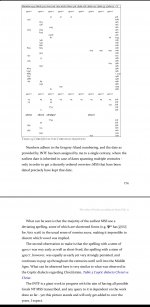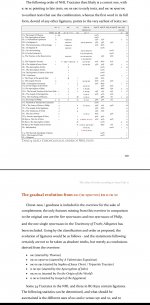Hi mlinssen,
We should include the Greek pic.
That will help determine if this is one of the corrected readings with χριϲτου.
Steven
I have the full Transcription of Sinaiticus, including corrections - but feel free to include the pic
FYI: there are no instances of corrections that concern Xristos. Habakkuk 3:13 has been changed to say τουϲ χριϲτουϲ, but it already said τον χριϲτον.
If you mean one of those from the usual nine verses, in Sinaiticus only "Chr?stian" gets written as χρηϲτ-, and naturally corrected - only Bezae escaped that fate, taking the Big Five.
Vaticanus (03) sticks to χρειϲτ- for all - which later got corrected by erasing the epsilon, ‘ε’; to be precise, all of Vaticanus got re-inked, and on that occasion the ‘ε’ did not get included.
Bezae (05) (which provides only two samples out of this total set of nine) uses χρειϲτ- for all - and this was left intact. The word is omitted in Mark and shortened in Latin Matthew, and it says ‘christianos’ for Latin Acts 11:26;
▪ Matthew 24:24 says ψευδοχρειϲτοι, and ‘pseudox̅p̅i’ on the next page for the Latin
▪ Acts 11:26 says χρειϲτιανοι (which later got redacted to χρειϲτιανουϲ), and ‘(discipulos) christianos’, a surprising singular, on the next page for the Latin
Diplomatic transcription for Sinaiticus Rev 12:10:
10
ϲαν και ηκουϲα
φωνην μεγαλη
εν τω ουνω λεγου
ϲαν αρτι εγενετο
η ϲωτηρια και η
δυναμιϲ και η βα
ϲιλια του θυ ημω
και η εξουϲια του
χριϲτου αυτου οτι
εβληθη ο κατηγο
ροϲ των αδελφω
ημων ο κατηγο
ρων αυτων ενω
πιον του θυ ημω
ημεραϲ και νυκτοϲ
Sinaiticus usual list, consisting of the duo pseudo-XS, the trio XS-ian and the quartet anti-XS:
▪ Sinaiticus book 33, chapter 24, verse 24 (Matthew 24:24): ψευδοχριϲτοι
▪ Sinaiticus book 34, chapter 13, verse 22 (Mark 13:22): ψευδοχριϲτοι
▪ Sinaiticus book 51, chapter 11, verse 26 (Acts 11:26): χρηϲτιανουϲ
▪ Sinaiticus book 51, chapter 26, verse 28 (Acts 26:28): χρηϲτιανον
▪ Sinaiticus book 53, chapter 4, verse 16 (1 Peter 4:16): χρηϲτιανοϲ
▪ Sinaiticus book 55, chapter 2, verse 18 (1 John 2:18): αντιχριϲτοϲ, αντιχριϲτοι
▪ Sinaiticus book 55, chapter 2, verse 22 (1 John 2:22): αντιχριϲτοϲ
▪ Sinaiticus book 55, chapter 4, verse 3 (1 John 4:3): αντιχριϲτου
▪ Sinaiticus book 56, chapter 1, verse 8 (2 John 1:7): αντιχριϲτοϲ
INTF provides two dozen MSS that say χρηϲτ for either the first (duo) or the last (quartet) yet only five for the second (trio), all dating to either 10th century or later - and χρειϲτ is present in only three MSS, yet those date to 5th, 7th and 9th century.


